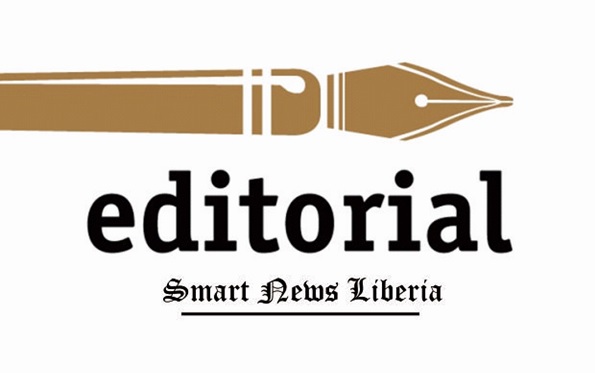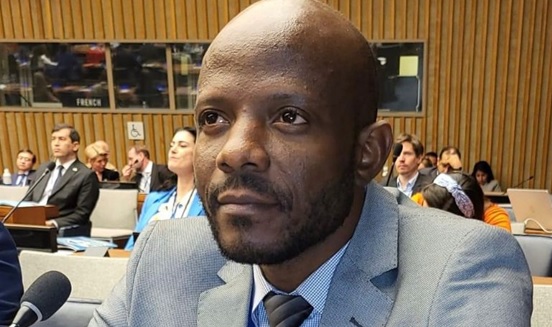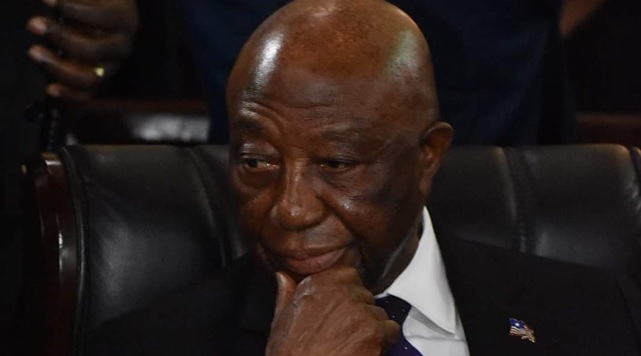The recent deployment of Armed Forces of Liberia (AFL) personnel at Roberts International Airport has sparked a heated debate about the balance between security and political freedom in Liberia. Brigadier General Davidson Fayiah Forleh, the AFL Chief of Staff, has stated unequivocally that the deployment was unauthorized by the AFL high command. Despite this, Information Ministry Spokesman Jerolinmek Matthew Piah defended the government’s actions during a Ministry of Information, Culture Affairs, and Tourism (MICAT) briefing on Tuesday, July 16. This incident raises critical questions about the current administration’s approach to maintaining order and its implications for Liberia’s democratic stability.
According to Piah, members of the former ruling Coalition for Democratic Change (CDC) had threatened to burn down the airport if they were not allowed to welcome their leader, former President George Weah. The claim of such threats, if true, would indeed necessitate a robust security response. However, the manner in which the situation was handled has become a point of contention, highlighting the complexities of managing public safety while respecting political rights.
Piah reported that a large crowd of CDC supporters attempted to force their way onto the runway to greet Weah, which posed significant security risks. The deployment of AFL officers, along with the Police and Emergency Response Unit (ERU), was therefore presented as a necessary measure to manage the potential chaos. From the government’s perspective, ensuring the safety of both the airport operations and the public was paramount. Yet, the unauthorized nature of the deployment has led to accusations of overreach and lack of coordination within the government’s security apparatus.
Criticism from the CDC has been swift and sharp. The party argues that the current government under President Joseph Boakai is jeopardizing national peace and security. They contend that the deployment of military forces in what they describe as a politically charged environment is an overreaction that could exacerbate tensions rather than defuse them. The CDC’s stance underscores the delicate balance that must be maintained in a democratic society between ensuring security and allowing for political expression.
The incident also raises broader concerns about the command and control structures within Liberia’s security forces. Brigadier General Forleh’s statement about the unauthorized nature of the deployment suggests a breakdown in communication and oversight. Such gaps can lead to serious consequences, not only in terms of immediate security but also in the broader context of civil-military relations and public trust in government institutions.
Furthermore, this situation presents a test for President Boakai’s administration. Elected on a platform of transparency and accountability, the administration now faces scrutiny over its handling of security issues. The public and political observers alike will be watching closely to see how the government addresses the apparent disconnect within its security apparatus and whether it takes steps to prevent similar occurrences in the future.
The deployment at the airport also brings to light the ongoing political tensions in Liberia. The CDC, having been the ruling party until recently, continues to have a significant support base that is passionate and, at times, confrontational. Managing such dynamics requires not only strategic security measures but also efforts to foster dialogue and political inclusivity. The Boakai administration’s response to this incident will be crucial in setting the tone for future interactions with opposition parties and their supporters.
In conclusion, while the need to maintain security at the airport in the face of potential threats is understandable, the manner in which this situation was handled raises important questions about coordination, oversight, and respect for political freedoms. The government must address these issues transparently to uphold the principles of democracy and maintain public trust. As Liberia navigates these challenges, it is essential for all stakeholders to prioritize dialogue and cooperation to ensure a stable and peaceful political environment.







